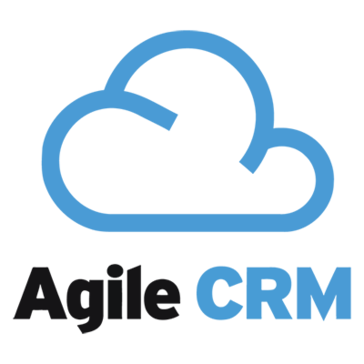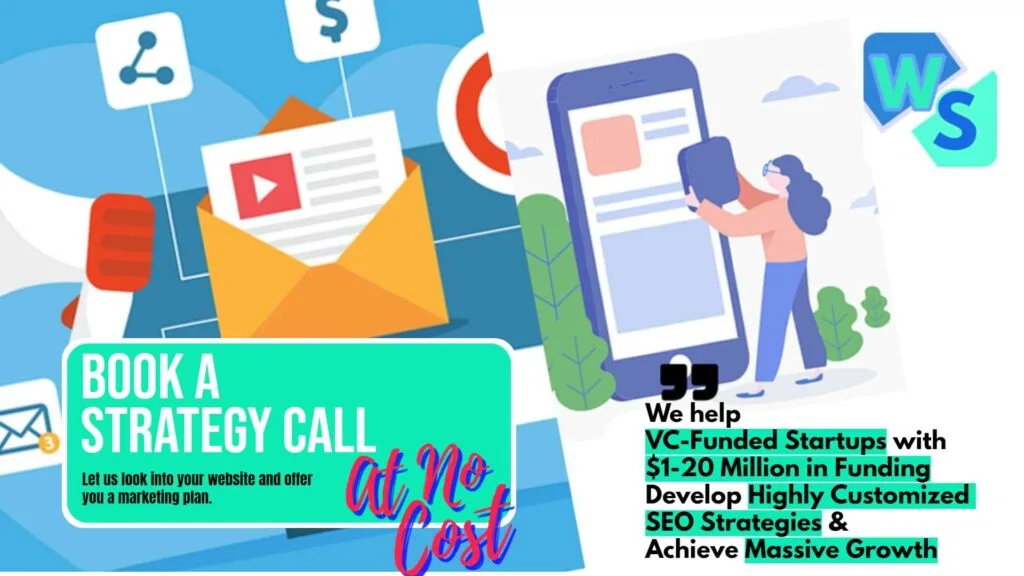Navigating the world of CRM tools can often feel like being a kid in a candy store—overwhelmed by choices, each more enticing than the last. Yet, in this abundance, two names frequently emerge as frontrunners for businesses hungry for growth: Keap and Agile CRM. But how do you decide which of these tools is the sweet spot for your business needs? While both platforms promise to streamline your customer relationship management, they cater to different palates. Let’s bite into the comparison.
| Keap | Agile CRM |
|---|---|
 |  |
| G2 Score -4.2 out of 5 | G2 Score -4.0 out of 5 |
| TrustRadius Score -8.1 out of 10 | TrustRadius Score -7.5 out of 10 |
Ease of Use and User Interface
In the realm of CRM solutions, the importance of a user-friendly interface cannot be overstated. A CRM, no matter how powerful, risks underutilization if navigating it feels like solving a Rubik’s cube. Keap and Agile CRM both boast features designed to enhance user experience, but they take different paths to achieve this goal.
Keap: Simplifying the Complex
Keap (formerly Infusionsoft) is often celebrated for its commitment to making sophisticated marketing automation and customer management processes accessible to less tech-savvy users. The platform’s interface is clean and intuitive, with a dashboard that presents vital information at a glance and a navigation system that makes sense from the get-go. Where Keap truly shines is in its campaign builder— a visual masterpiece that allows users to create complex automation workflows with simple drag-and-drop actions. This approach significantly lowers the barrier to entry for small businesses looking to automate their sales and marketing without getting bogged down by complexity.
Agile CRM: Balancing Functionality and Usability
Agile CRM, on the other hand, positions itself as a jack-of-all-trades, integrating sales, marketing, and service automation in a single platform. Its interface is designed to accommodate this breadth of functionality without sacrificing user-friendliness. Users are greeted with a dashboard that can be customized to display the metrics and tools most relevant to their role, making daily tasks more manageable. Agile CRM also offers a visual campaign builder, though with a steeper learning curve than Keap’s. However, once mastered, it provides powerful automation capabilities at the user’s fingertips.
Automation Capabilities
The automation features of a CRM can significantly enhance a business’s operations, impacting everything from marketing campaigns to sales processes and customer service. Let’s see how Keap and Agile CRM stack up in providing automation tools that can transform your business workflows.
Keap: Automation with a Personal Touch
Keap is renowned for its sophisticated automation capabilities, particularly in the realms of sales and marketing. The platform’s strength lies in its ability to simplify complex automation workflows, making it accessible even to those with minimal technical expertise. Keap’s campaign builder allows businesses to create detailed, automated customer journeys that can trigger specific actions based on customer behaviors, such as opening an email or visiting a webpage. This enables businesses to nurture leads effectively and move them through the sales funnel with minimal manual intervention.
Beyond marketing, Keap provides tools for automating sales tasks, like follow-ups and appointment scheduling, ensuring that potential deals are nurtured promptly and efficiently. Automation in Keap doesn’t come at the expense of personalization. The platform ensures that automated communications can be highly personalized based on customer data, enhancing engagement and conversion rates.
Agile CRM: A Comprehensive Automation Suite
Agile CRM positions itself as a versatile tool that extends automation capabilities across sales, marketing, and customer service. Its comprehensive suite is designed to cater to businesses looking for an all-in-one solution to manage and automate their customer relationships. From automating marketing campaigns to streamlining sales processes and providing timely customer support, Agile CRM offers a holistic approach to automation. This ensures consistency and efficiency across all customer touchpoints.
Agile CRM supports automation across various channels, including email, SMS, social media, and web, enabling businesses to reach customers wherever they are. Similar to Keap, Agile CRM allows for the automation of actions based on customer behaviors. This behavioral trigger system enables businesses to respond dynamically to customer interactions, offering relevant content and solutions at the right time.
Pricing and Scalability
Let’s examine how Keap and Agile CRM position themselves in terms of pricing structures and their capabilities to scale with your business needs.
Pricing in Keap

Keap offers a tiered pricing model, which is designed to accommodate businesses at different stages of growth. Its approach allows companies to start with a plan that matches their current size and complexity, with the option to upgrade as their needs evolve. Keap’s pricing structure is divided into several tiers, starting with a basic plan that covers the essentials of CRM and marketing automation. More advanced plans include additional features such as e-commerce capabilities, advanced automation, and more.
Beyond the base plans, Keap allows businesses to add specific functionalities based on their unique requirements, which could include additional users, premium integrations, and advanced sales and marketing features. Keap’s model is designed for growth, enabling businesses to seamlessly move to higher tiers as their needs expand. This scalability is crucial for startups and small businesses planning for future expansion.
Pricing in Agile CRM

Agile CRM provides a competitive pricing strategy that appeals to small and medium-sized businesses looking for a comprehensive CRM solution without a significant investment. Its pricing model is straightforward, offering clear value at each level. Agile CRM sets itself apart with a freemium plan that supports a small number of users and offers basic CRM functionalities, making it an attractive option for very small businesses or startups just beginning to explore CRM solutions.
Beyond the free plan, Agile CRM offers several paid tiers, which include progressively more advanced features, such as marketing automation, custom deal milestones, and increased storage. Agile CRM’s pricing and plan structure are designed to grow with your business. Upgrading plans is straightforward, ensuring that businesses can access more advanced features and accommodate more users as they scale.
Customer Support and Training
A comprehensive approach to customer support and training not only smoothens the initial adaptation phase but also ensures the CRM continues to deliver value as businesses evolve. Here’s how Keap and Agile CRM measure up in these essential services.
Customer Support in Keap
Keap is well-regarded for its customer support, offering multiple channels to assist users with any queries or issues that may arise. Keap aims to ensure businesses can effectively utilize its platform to its full potential, fostering growth and efficiency. Keap offers support through phone, email, and chat, covering a broad spectrum of preferences for reaching out for help. This ensures users can select the most convenient way to get their issues addressed promptly.
Beyond reactive support, Keap invests heavily in user education, providing an extensive library of training materials. This includes webinars, tutorials, and detailed articles designed to help users navigate the platform, set up complex automation workflows, and optimize their CRM strategy. For businesses looking for a more guided start, Keap offers personalized onboarding sessions. These sessions help new users quickly become familiar with the platform’s features, ensuring a smooth transition and quicker realization of ROI.
Customer Support in Agile CRM
Agile CRM’s approach to customer support emphasizes accessibility and comprehensiveness, aiming to cater to the diverse needs of its user base. Agile CRM understands that robust support is a cornerstone of user satisfaction and long-term platform adoption. Recognizing that businesses operate round the clock and across time zones, Agile CRM provides 24/7 support. This ensures that users can get assistance whenever needed, minimizing disruptions to their operations.
Agile CRM offers a rich selection of self-help resources, including a detailed knowledge base, video tutorials, and FAQs. These resources are designed to empower users to find answers independently and learn at their own pace. Agile CRM fosters a community-driven support ecosystem, where users can share insights, ask questions, and learn from each other’s experiences. This peer-to-peer support mechanism complements the official support channels, offering diverse perspectives and solutions.

Related: Check out our free SEO suite

Mobile Accessibility
A CRM’s mobile capabilities can significantly enhance field sales efforts, remote work, and overall business agility. Here’s how Keap and Agile CRM stack up in providing users with powerful mobile tools.
Mobile Accessibility in Keap
Keap recognizes the importance of mobile accessibility and offers a mobile app designed to keep businesses connected to their customers and data, regardless of location. The app focuses on core CRM functionalities, ensuring users can continue their work seamlessly while away from their desks. The Keap mobile app allows users to manage contacts, update client records, send messages, and even create and send invoices directly from their phone or tablet. This ensures that sales teams can maintain momentum, follow up on leads, and close deals without needing to be in the office.
While the mobile app focuses more on CRM and sales functions, it still provides access to basic marketing automation features, enabling users to trigger campaigns and follow up on engagements on the fly. The app is designed with simplicity in mind, mirroring the desktop’s ease of use. This ensures a short learning curve and high adoption rate among team members, regardless of their tech savviness.
Mobile Accessibility in Agile CRM
Agile CRM offers a mobile app that complements its web-based platform, providing users with a comprehensive toolset for managing customer relationships, marketing, and sales activities from their mobile devices. The app is designed to ensure no opportunity is missed, even when on the move. Agile’s mobile app offers a wide range of CRM functionalities, including contact management, deal updates, and task management. This allows users to have the full picture of customer interactions and sales pipelines at their fingertips.
In addition to CRM features, the Agile CRM mobile app includes capabilities for managing sales and marketing activities, providing users with tools for tracking deals, sending emails, and even automating workflows directly from their mobile device. The mobile app ensures seamless integration and synchronization with the web platform, guaranteeing that data is up-to-date and consistent across devices. This is crucial for businesses relying on real-time data to make informed decisions.
Conclusion
Both Keap and Agile CRM present compelling features that can significantly benefit businesses looking to enhance their customer relationship management, albeit in slightly different ways. Your decision should not only reflect your current needs but also consider the CRM’s ability to adapt and scale with your business. By choosing a platform that aligns with your operational style, growth ambitions, and budget, you’ll set a solid foundation for improved customer engagement, streamlined processes, and, ultimately, business success.
READ NEXT:
- Insightly vs Salesmate: The Best CRM Tool for You
- The Importance of GDPR Compliance in Affiliate Marketing
- Management Of Working Capital By Business Owners: 11 Unique Industries!
- Insightly vs Wise Agent: The Best CRM Tool for You
- Keap vs Salesmate: The Best CRM Tool for You
- 9 Best Marketing CRM Software (For You): In 2023
- 19+ Top Customer Relationship Management (CRM) Software: What’s Best?






















Comments are closed.